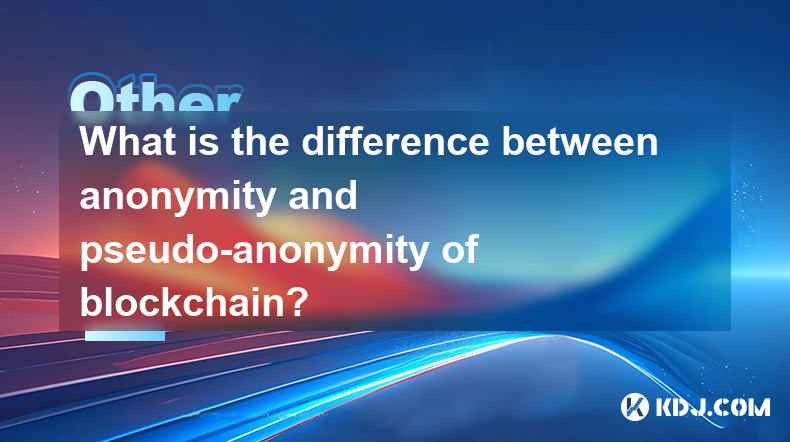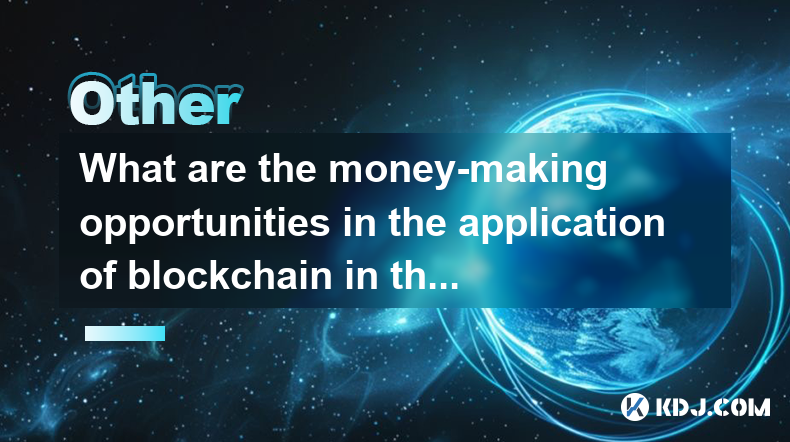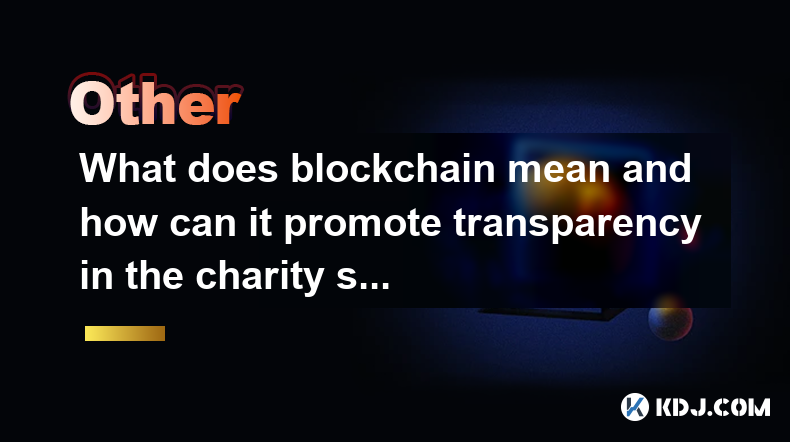-
 Bitcoin
Bitcoin $82,509.8850
-2.52% -
 Ethereum
Ethereum $1,800.3816
-3.46% -
 Tether USDt
Tether USDt $0.9996
-0.02% -
 XRP
XRP $2.0537
-1.80% -
 BNB
BNB $589.5226
-1.44% -
 USDC
USDC $1.0000
0.02% -
 Solana
Solana $116.3439
-6.85% -
 Dogecoin
Dogecoin $0.1595
-5.58% -
 Cardano
Cardano $0.6479
-2.79% -
 TRON
TRON $0.2366
-0.33% -
 Toncoin
Toncoin $3.5766
-9.59% -
 UNUS SED LEO
UNUS SED LEO $9.3922
-0.34% -
 Chainlink
Chainlink $12.7758
-5.57% -
 Stellar
Stellar $0.2586
-2.92% -
 Avalanche
Avalanche $18.1038
-3.99% -
 Sui
Sui $2.2274
-5.69% -
 Shiba Inu
Shiba Inu $0.0...01219
-1.98% -
 Hedera
Hedera $0.1627
-3.05% -
 Polkadot
Polkadot $4.0427
-1.01% -
 Litecoin
Litecoin $82.8658
-2.85% -
 MANTRA
MANTRA $6.3993
1.10% -
 Bitcoin Cash
Bitcoin Cash $298.9153
-0.95% -
 Bitget Token
Bitget Token $4.4795
-2.24% -
 Dai
Dai $0.9999
0.01% -
 Ethena USDe
Ethena USDe $0.9994
-0.04% -
 Hyperliquid
Hyperliquid $11.7782
-8.21% -
 Monero
Monero $212.0245
-3.58% -
 Pi
Pi $0.5720
-14.14% -
 Uniswap
Uniswap $5.8118
-4.56% -
 Aptos
Aptos $5.0504
-4.12%
What is the difference between anonymity and pseudo-anonymity of blockchain?
Blockchain offers pseudo-anonymity, where transactions are public but identities are obscured by cryptographic keys, yet true anonymity remains elusive due to traceability.
Mar 27, 2025 at 08:42 pm

Understanding Anonymity and Pseudo-anonymity in Blockchain
The blockchain, while often touted for its transparency, offers varying degrees of privacy. The key distinction lies between true anonymity and pseudo-anonymity. Understanding this difference is crucial for navigating the complexities of cryptocurrency transactions and their implications for user privacy.
True anonymity, in the context of blockchain, means that transactions are completely untraceable back to a specific individual. No identifying information is linked to the transaction, making it impossible to determine the sender or receiver's identity. This level of privacy is extremely rare in the current blockchain landscape.
Pseudo-anonymity, on the other hand, is far more common. It means that while transactions are recorded publicly on the blockchain, the identities of the users are obscured. Users are typically identified by their public keys, which are long strings of alphanumeric characters. While these keys don't directly reveal personal information, they can potentially be linked to real-world identities through various methods. This linking is often the focus of blockchain analysis efforts.
How Pseudo-anonymity Works on the Blockchain
Pseudo-anonymity relies on the use of cryptographic techniques to protect user identities. The core mechanism is the use of public and private keys. A public key is like a publicly available email address, while the private key is the password that only the user knows. Transactions are signed using the private key, and verified using the public key. This ensures that only the rightful owner can spend the cryptocurrency.
However, this system isn't entirely anonymous. The public key, while not directly revealing personal information, can still be tracked across the blockchain. Multiple transactions using the same public key can be linked together, potentially revealing patterns of activity that could lead to identification. This is where the vulnerability of pseudo-anonymity lies.
Techniques to Enhance Privacy on the Blockchain
Several techniques aim to enhance privacy beyond the inherent pseudo-anonymity of the blockchain. These methods try to break the link between public keys and real-world identities.
Mixing Services: These services pool together multiple transactions, making it difficult to trace the origin and destination of individual funds. This obfuscates the transaction history, improving privacy.
Zero-Knowledge Proofs: These cryptographic techniques allow users to prove the validity of a transaction without revealing any other information. They can demonstrate ownership of funds without exposing the details of their holdings.
Confidential Transactions: These technologies encrypt transaction amounts, making it impossible to see how much cryptocurrency is being transferred. This adds another layer of privacy to the blockchain.
Privacy Coins: Cryptocurrencies like Monero and Zcash are specifically designed to prioritize privacy. They incorporate features like ring signatures and stealth addresses to enhance anonymity.
Limitations of Blockchain Privacy Techniques
Even with privacy-enhancing techniques, complete anonymity remains elusive on most blockchains. The inherent transparency of the blockchain means that some level of tracking is always possible. Sophisticated analysis can still potentially link transactions to individuals, particularly if combined with data from other sources.
The Role of Blockchain Explorers
Blockchain explorers are public databases that allow anyone to view transactions on a specific blockchain. They are essential tools for transparency and auditing but also highlight the limitations of pseudo-anonymity. While user identities are not directly revealed, the transaction history is visible, and patterns of activity can be analyzed.
The Importance of Regulatory Compliance
The use of blockchain technology and cryptocurrencies is subject to increasing regulatory scrutiny. Governments and financial institutions are actively working to combat illicit activities like money laundering and terrorist financing, which often leverage the pseudo-anonymity offered by blockchain. Therefore, maintaining a balance between privacy and compliance is a key challenge.
The Future of Privacy on the Blockchain
The development of new privacy-enhancing technologies continues to push the boundaries of blockchain anonymity. However, achieving true anonymity remains a significant technical challenge. The ongoing tension between privacy, transparency, and regulatory compliance will shape the future of blockchain technology and its role in a data-driven world.
The Ever-Evolving Landscape of Blockchain Privacy
The pursuit of improved privacy on the blockchain is an ongoing process. New techniques and approaches are constantly being developed, and the effectiveness of existing methods is constantly being tested. The balance between privacy and security will likely continue to evolve as the technology matures. Understanding the nuances of pseudo-anonymity and the limitations of privacy-enhancing technologies is crucial for anyone engaging with cryptocurrencies.
Frequently Asked Questions
Q: Is it possible to achieve complete anonymity on a public blockchain?
A: No, achieving complete anonymity on a public blockchain is practically impossible. While techniques like mixing services and privacy coins enhance privacy, they don't guarantee complete untraceability. The inherent transparency of the blockchain always leaves a trail.
Q: What are the risks associated with pseudo-anonymity?
A: The risks associated with pseudo-anonymity include the potential for linking transactions to real-world identities through various methods of analysis. This can expose users to unwanted surveillance, compromise financial privacy, and potentially lead to legal repercussions.
Q: How can I improve my privacy when using cryptocurrencies?
A: To improve your privacy, consider using privacy coins, mixing services, and employing strong operational security practices. Always be mindful of the information you share online and avoid linking your cryptocurrency activities to your personal identity.
Q: Are all cryptocurrencies equally private?
A: No, cryptocurrencies vary significantly in their level of privacy. Some, like Bitcoin, offer only pseudo-anonymity, while others, like Monero and Zcash, are designed with enhanced privacy features. The choice of cryptocurrency depends on your individual privacy needs and risk tolerance.
Q: What is the role of regulation in blockchain privacy?
A: Regulations aim to balance the benefits of blockchain technology with the need to prevent illicit activities. Regulations may impact the design and use of privacy-enhancing technologies, creating a complex interplay between privacy, security, and compliance.
Disclaimer:info@kdj.com
The information provided is not trading advice. kdj.com does not assume any responsibility for any investments made based on the information provided in this article. Cryptocurrencies are highly volatile and it is highly recommended that you invest with caution after thorough research!
If you believe that the content used on this website infringes your copyright, please contact us immediately (info@kdj.com) and we will delete it promptly.
- How XRPL Utility Can Support Token Price Growth
- 2025-04-04 05:35:12
- Long-dormant Bitcoin wallets have suddenly sprung to life
- 2025-04-04 05:35:12
- ExoraPad ($EXP), an innovative AI-powered launchpad exclusively developed for the XRP Ledger (XRPL), has reached an impressive milestone
- 2025-04-04 05:30:12
- XRP Price Surge Could Enable Early Retirement for Numerous Investors
- 2025-04-04 05:30:12
- XRP Price Prediction: Will XRP Bounce From This Support Or Continue Its Descent?
- 2025-04-04 05:25:12
- As US Treasury yields hit 6-month lows, Bitcoin (BTC) price may be poised for a breakout
- 2025-04-04 05:25:12
Related knowledge

What are the future development trends of blockchain game development?
Apr 03,2025 at 05:00am
Blockchain technology has revolutionized various industries, and gaming is no exception. As we look to the future, several trends are set to shape the development of blockchain games. These trends not only promise to enhance the gaming experience but also to integrate blockchain technology more seamlessly into the gaming ecosystem. Let's explore these t...

What are the maintenance costs of blockchain system development?
Apr 03,2025 at 06:07pm
The maintenance costs of blockchain system development are multifaceted and depend on various factors. These costs can include technical maintenance, security updates, infrastructure expenses, and personnel costs. Understanding these elements is crucial for anyone planning to develop or maintain a blockchain system. Technical MaintenanceTechnical mainte...

What are the money-making opportunities in the application of blockchain in the medical industry?
Apr 03,2025 at 03:35am
The integration of blockchain technology into the medical industry presents a myriad of money-making opportunities that can revolutionize healthcare systems. Blockchain's inherent characteristics, such as transparency, security, and immutability, make it an ideal solution for various medical applications. By leveraging blockchain, companies can develop ...

What are the money-making opportunities when blockchain and artificial intelligence are combined?
Apr 04,2025 at 01:28am
The convergence of blockchain and artificial intelligence (AI) presents a myriad of money-making opportunities within the cryptocurrency circle. This fusion leverages the decentralized and secure nature of blockchain with the analytical prowess of AI, creating innovative solutions and platforms that can generate significant revenue. From enhancing tradi...

What does blockchain mean and how can it promote transparency in the charity sector?
Apr 03,2025 at 08:29pm
Blockchain technology is a decentralized, distributed ledger that records transactions across numerous computers. This ensures that the data is transparent and nearly impossible to alter retroactively. Essentially, blockchain serves as a digital ledger of all cryptocurrency transactions, enabling secure and direct exchanges without the need for intermed...

What does blockchain mean and how does it achieve efficient asset tokenization?
Apr 03,2025 at 07:57pm
Blockchain technology is a decentralized, distributed ledger that records transactions across numerous computers. It ensures that each transaction is secure, transparent, and immutable. The concept of blockchain was introduced with the launch of Bitcoin in 2009, but its applications have since expanded far beyond cryptocurrencies. At its core, blockchai...

What are the future development trends of blockchain game development?
Apr 03,2025 at 05:00am
Blockchain technology has revolutionized various industries, and gaming is no exception. As we look to the future, several trends are set to shape the development of blockchain games. These trends not only promise to enhance the gaming experience but also to integrate blockchain technology more seamlessly into the gaming ecosystem. Let's explore these t...

What are the maintenance costs of blockchain system development?
Apr 03,2025 at 06:07pm
The maintenance costs of blockchain system development are multifaceted and depend on various factors. These costs can include technical maintenance, security updates, infrastructure expenses, and personnel costs. Understanding these elements is crucial for anyone planning to develop or maintain a blockchain system. Technical MaintenanceTechnical mainte...

What are the money-making opportunities in the application of blockchain in the medical industry?
Apr 03,2025 at 03:35am
The integration of blockchain technology into the medical industry presents a myriad of money-making opportunities that can revolutionize healthcare systems. Blockchain's inherent characteristics, such as transparency, security, and immutability, make it an ideal solution for various medical applications. By leveraging blockchain, companies can develop ...

What are the money-making opportunities when blockchain and artificial intelligence are combined?
Apr 04,2025 at 01:28am
The convergence of blockchain and artificial intelligence (AI) presents a myriad of money-making opportunities within the cryptocurrency circle. This fusion leverages the decentralized and secure nature of blockchain with the analytical prowess of AI, creating innovative solutions and platforms that can generate significant revenue. From enhancing tradi...

What does blockchain mean and how can it promote transparency in the charity sector?
Apr 03,2025 at 08:29pm
Blockchain technology is a decentralized, distributed ledger that records transactions across numerous computers. This ensures that the data is transparent and nearly impossible to alter retroactively. Essentially, blockchain serves as a digital ledger of all cryptocurrency transactions, enabling secure and direct exchanges without the need for intermed...

What does blockchain mean and how does it achieve efficient asset tokenization?
Apr 03,2025 at 07:57pm
Blockchain technology is a decentralized, distributed ledger that records transactions across numerous computers. It ensures that each transaction is secure, transparent, and immutable. The concept of blockchain was introduced with the launch of Bitcoin in 2009, but its applications have since expanded far beyond cryptocurrencies. At its core, blockchai...
See all articles






















































































